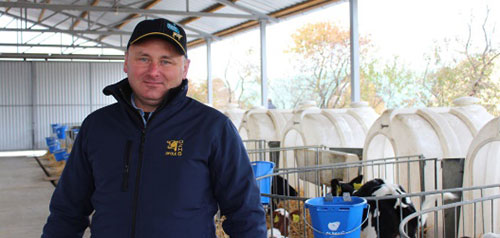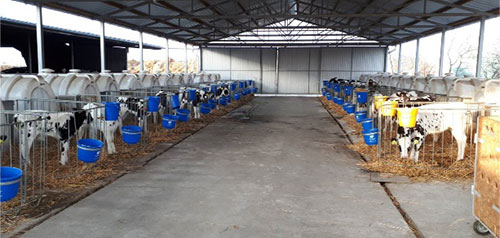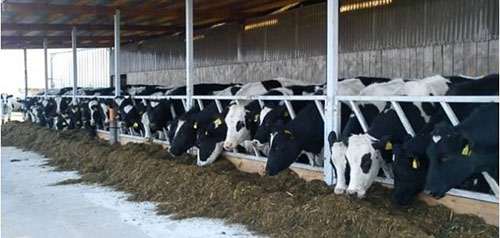Martin Ziaja reports on the situation of Polish milk producers
Four months on from the outbreak of the pandemic and gives his assessment of the European milk policy
It is the end of June and we are almost four months into the pandemic. The question being asked by milk producers in Poland is: will production continue as before or has anything changed? The answer is no, more or less. The situation is a only little different where marketing is concerned. The dairies that produced specifically for the catering industry and hotels were affected first, as well as the related dairy farms, of course. One example from southern Poland is a cooperative dairy that is focussed on producing for hotels and restaurants, and which lost 80 percent of its customers within one week. Farms that were not members of the cooperative were ousted. Those farms with supply contracts and cooperative members were able to continue supplying milk, but at an extremely low price of around 1 zloty (0.24 euros). Prior to the crisis, suppliers were receiving 1.58 zloty (0.38 euros). (March 2020 €1 = 4.20 zloty). Of course, this is an extreme example from a market niche that has suddenly disappeared. No management consultant could have forecast that. The second group of dairy product producers that have suffered a little is the dairies whose production is focussed specifically on export. The borders were closed at the end of March, including for goods in transit. Goods traffic only became possible again following intervention by the President of the EU Commission, Ursula von der Leyen, thus improving the exporters' situation, but not without losses. Naturally, the entire milk sector has suffered due to the COVID-19 pandemic and has not managed to rid itself of its problems as yet.
As a dairy farmer, I see a lack of justice in the value-adding chain, particularly now during the coronavirus crisis. The dairy farmers with dairies – in Poland, two thirds of dairies belong to the farmers in the form of cooperatives – always lose out in negotiations with supermarkets. In practice, however, customers are paying higher prices for food. The explanation given for this is the pandemic and the resulting supply problems. On the other hand, the producers' milk prices are being pushed down, with unit sales disruptions being cited as the reason. In actual fact, this is not true. The crisis shows us that it is high time for dairies to cooperate in marketing. Otherwise, we will be oppressed by retailers.
Poland has a self-sufficiency level of 126 percent in milk production; in the light of high import figures, this also means that the country is an important exporter of dairy products. Under this aspect, the country's weakened currency, the zloty, is bolstering milk exports (May €1 = 4.50 zloty). Naturally, this is impacting positively on the sector. However, what is having a positive effect on one hand is unfortunately being destroyed by politicians on the other hand. In May, Poland's Minister of Agriculture drew up a blacklist shaming milk importers. The politician has somehow forgotten that Poland has a milk surplus of around 2 million tonnes. And if the trading countries that are important to Poland also draw up such blacklists, we will drown in our own milk. But let us hope that this has no effect on the milk market.
Despite major difficulties, there is always hope of a positive outlook. The commodities exchange is one indicator of this. Milk has been showing an upwards trend for a number of weeks. The reason for this is the drought in 2019 and the resulting lack of basic fodder. However, milk supplies are not in decline. The positive trend on the export market, including outside of the EU, is also hopeful. Another positive aspect is the per-capita consumption, which has been increasing in Poland since the country acceded to the EU. In 2005, one year after joining the EU, it was 178 litres of milk per person. Today, the Poles consume 220 litres of milk per person, not including butter. This increase of over 40 litres of milk per person is enabling farmers to develop. Unfortunately, a boundary is now being reached slowly but surely. Across Europe, animal protection associations, climatologists and vegans are exerting an ever increasing influence on society. We therefore have to consider how we can continue to produce milk viably in the future. It is also worth giving thought to the EU's form of support for the dairy industry. Does it really make sense to subsidise stocks? From the perspective of a consumer, perhaps due to food safety, yes. From my point of view, however, it only provides help in the short term. In the long term, it does not help dairy farmers a great deal. Naturally, we would readily welcome export subsidies, but I am aware that these subsidies are not possible. Another solution may be the market responsibility programme proposed by the EMB. But which farmer will do that voluntarily? Should it be legally compulsory? It once again provides for a quota system, and that is precisely what we do not want. I am therefore wondering whether it would not be sensible to use the EU dairy sector subsidies simply for farms that voluntarily want to stop producing milk. This could perhaps halt the constant increase in milk production.
Because we farmers have to be clear about one thing: as long as there are food surpluses, we have no chance of our demands being met.



